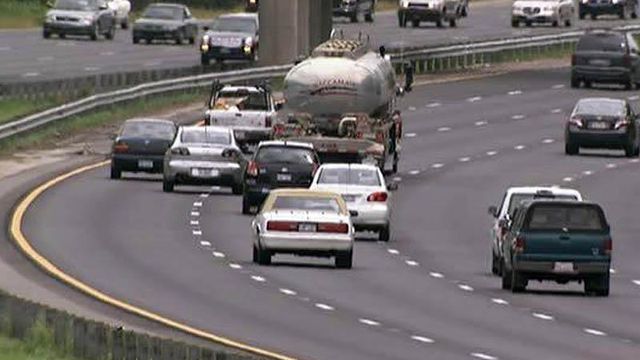On second thought, House rejects plan to put license plate readers on highways
The House on Monday narrowly approved allowing license plate readers to be set up along state highways. Then they decided not to.
Posted — UpdatedA short time after the House voted 59-57 in favor of the bill, it was brought back for reconsideration and was defeated 47-69.
Privacy advocates expressed concern that the plate readers could be used to track the movements of law-abiding citizens.
"I want to help law enforcement. I really do. But I don't want to give up my liberty, and I don't want to give up the liberty of the people I represent," said Rep. Michael Speciale, R-Craven.
Rep. Larry Pittman, R-Cabarrus, predicted an Orwellian future for North Carolina residents with plate readers used to help government keep tabs on citizens.
"I do sincerely not trust the government," Pittman said. "I do sincerely fear what types of things might be done with this capability down the road."
"Nothing is going to happen that is not already happening," Iler said.
Rep. Allen McNeill, R-Randolph, a former sheriff's deputy, noted that the data recorded by the plate readers is purged after 90 days unless law enforcement obtains a court order to retain information related to specific vehicles as part of a criminal investigation.
Still, that wasn't enough for those concerned about a loss of their civil liberties.
"We're dying the death of 1,000 cuts," said Rep. Keith Kidwell, R-Beaufort, noting that the House last week passed a measure allowing some warrantless wiretaps. "We're handing away our rights one piece at a time, and at some point, we'll get to where we don't have any."
Related Topics
• Credits
Copyright 2024 by Capitol Broadcasting Company. All rights reserved. This material may not be published, broadcast, rewritten or redistributed.






